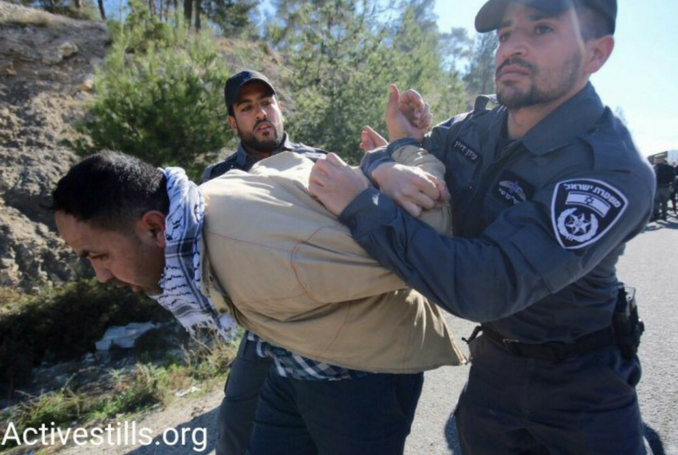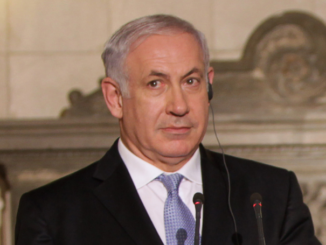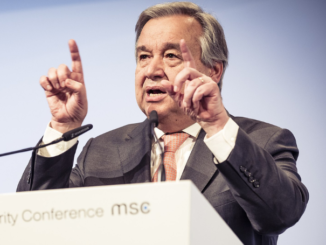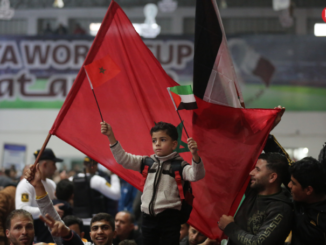
By CJ Werleman
If Israel’s occupation of Palestinian territories is illegal—and it is—under international law, then by definition Palestinian resistance of that occupation is legitimate.
Pro-Israel propaganda is not only extraordinarily well funded and organized, but also meticulously scientific. For instance, Israeli researchers discovered that replacing nouns with verbs reduced levels of anger or tension in those they were speaking to – whether it’s the Palestinian people living under the heel of its brutal occupation, or the broader international community.
They discovered that employing nouns instead of verbs had a “calming effect,” which, in turn, improved levels of support for Israel’s often draconian and controversial policies.
For example, the statement, “I am in favor of the removal of settlers” (noun) invoked far less anger from Jewish Israelis who were exposed to the use of the verb, “I am in favor of removing settlers.”
“The one is more like a statement of an abstract belief,” observes The Economist. “The other is more like a prescription of a course of action and is thus, the researchers hypothesized, more likely to arouse emotions.”
As the international community, albeit with the notable exception of the United States, condemned Israel’s savage, indiscriminate, and illegitimate use of deadly force against Palestinian protesters in Gaza, which culminated in the deaths of more than 120 and the injuries of thousands more since the Great Return March protests began, Israel has turned the hasbara machine onto overdrive.
Turn on any US cable news network, and you’ll see one pro-Israeli pundit or representative blame Palestinians for their own deaths, or Hamas, or a combination of both.
“Israel has a right to defend itself” is the well-trodden out trope, which is typically followed by the question, “What would you do if Hamas were firing rockets into your neighborhood?”
All of which is taking place in the media while US ambassador Nikki Haley praises Israel at the United Nations for “showing restraint.”
Yes, you read that right. While nearly every single member nation at the UN calls for an inquiry into Israel’s massacre of unarmed Palestinian protesters—many of whom were in the back and hundreds of meters from the perimeter fence—the United States government is lauding praise on unthreatened Israeli snipers.
The battle for legitimacy
When Israel says it has a “right to defend itself,” the correct response is to ask from what or whom?
Not a single Israeli citizen or soldier has been harmed or killed by Palestinians since the protests began. In short, Israel is shooting and killing human beings who pose absolutely zero threat to either the state of Israel or its citizens.
Moreover, never once have you ever heard an American journalist ask an Israeli war crimes apologist, “Well, don’t Palestinians have a right to defend themselves, too?”
It’s such a self-evidently obvious and simple question, but no one dare asks it. I mean, why not?
When Palestinians support non-violent forms of resistance, such as the boycott Israel movement, they’re smeared by Israel as “anti-Semites.” When they protest against their injustices angrily, they’re smeared as violent Arabs, and when they resort to violence, out of sheer desperation, they’re labeled “radical Islamic terrorists.”
So, I’ll ask again. Do Palestinians have a right to defend themselves?
The answer to that question is a resounding yes.
In fact, international law is unambiguous in its endorsement of “armed struggle” for peoples who seek self-determination under “colonial and foreign domination.”
United Nations resolution 37/43, dated 3 December 1982, “reaffirms the legitimacy of the struggle of peoples for independence, territorial integrity, national unity and liberation from colonial and foreign domination and foreign occupation by all available means, including armed struggle.”
Moreover, the resolution’s preamble makes clear that it refers not to a hypothetical in the abstract, but rather specifically to the rights of Palestinians, stating, “Considering that the denial of the inalienable rights of the Palestinian people to self-determination, sovereignty, independence and return to Palestine and the repeated acts of aggression by Israel against the peoples of the region constitute a serious threat to international peace and security.”
Lynda Burstein Brayer is an Israeli-trained human rights lawyer, and she affirms the legal and moral right Palestinians have to armed struggle against Israel’s occupation, noting, “This document [UN resolution 37/43] legitimises all national liberation struggles, including, at this time in history, most particularly, the Palestinian people’s struggle for its own freedom. It is this right which legitimizes all Palestinian attempts to lift the yoke of Israeli oppression from Palestine, including all the actions taken by the Palestinians during Operation Cast Lead [Israel’s 2008/09 siege of Gaza].”
Now we have completely flipped pro-Israel propaganda on its head.
Under international law, Israel’s occupation of the Palestinian territories is illegal, and Palestinians have a right to “armed struggle” against their illegal occupier – Israel – thus ipso facto Palestinians have a right to defend themselves against Israel, but Israel’s right to defend itself against Palestinian resistance is not guaranteed in the same manner.
This reality should be chanted far and loud for it undercuts every Israeli attempt to couch its violence against the Palestinian people in claims of self-defense.
What solidarity looks like
In particular, the “anti-war” left, who’ve long led the charge for Palestinian liberation in Western media have a responsibility to now defend all forms of Palestinian resistance, including violence.
To support only non-violent forms of Palestinian resistance is to be not only a weak ally of Palestinian aspirations but also an unwitting party to Israel’s efforts to obscure the reality of international law.
“For those who have never felt the constant yoke of oppression, or seen it up close, it is a vision beyond comprehension,” observes Stanley Cohen, a Jewish American lawyer. “Occupation sits heavy on the occupied, every day in every way, limiting who you are and what you may dare to become.”
For 70 years, Palestinians have been resisting the brutal realities of Israel’s colonial project and what has become the world’s longest military occupation in modern times. Seemingly, it matters not whether Palestinians choose violent or peaceful resistance. They’re sniped and gunned down while protesting; they’re bombed and strafed periodically; and they’re denied basic human rights, including freedom of movement and freedom from want or fear.
“When we take the diplomatic road, our people are dragged in a debate over our humanity,” tweeted Mariam Barghouti, a Palestinian journalist. “When we resist with arms, we are terrorists and killed, when we resist through non-violence, like BDS, we are targeted and vilified, when we protest with our tongues or slaps, we are put in prison.”
International law, however, sides with the struggle for Palestinian liberation, and is vehemently opposed to Israel’s transgressions, and thus the international community must stand in solidarity with the Palestinian people because, in the conflict between occupier and the occupied, only the occupied have a lawful and moral right to defend themselves.
– C.J. Werleman is an Australian born writer, columnist, and US political and social commentator. He tweets at @cjwerleman. This article was originally published in TRT World.hamas







